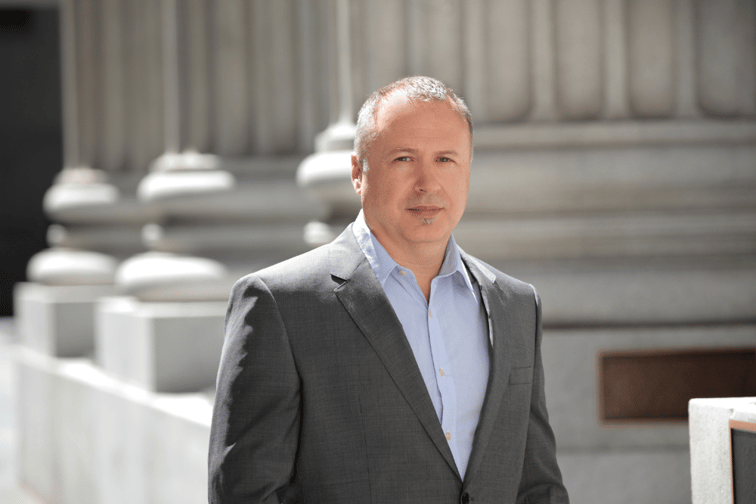

EIS co-founder and CEO Alec Miloslavsky (pictured) jumped and joined a competitive bidding process. EIS, a digital insurance platform provider, won the bid, and both parties announced the deal on August 4, concluding a process that took less than three months. The sale with Lemonade closed less than a week after Lemonade finalized its acquisition of Metromile and laid off 20% of its employees.
“It’s something I’m very excited about,” Miloslavsky said of the acquisition. “It will have great impact immediately on our customer base and I really hope we can take it across lines of business.”
Metromile’s former Enterprise Business Solutions arm, or EBS, is an SaaS-based claims automation and fraud detection product. The idea is that the EBS assets will quicken EIS’s push into new markets, boost its data science capabilities and also bring current and future customers new insurtech-related products and services.
EIS also plans to build on EBS’s technology and use it for new applications and products, and areas that EIS serves globally.
EBS brings to EIS a division of about 20 employees, and it will remain a standalone entity for now. EIS, launched in 2008, employs 1,500 people and is based in California.
“EIS’s proven track record in providing highly valued software to insurance companies, coupled with their deep technology expertise, makes them the right partner for EBS’s next chapter, Bill Chval, who will remain as EBS general manager, said in prepared remarks. “We have felt a strong alignment of values since the beginning and are truly excited about what we’ll be able to achieve together.”
EIS gains two gain components with the EBS platform. It has the claims processing front end designed to streamline the first notice of loss process and also a fraud detection application. Both components integrate together and are currently being offered to customers, Miloslavsky said.
The system appealed to EIS on multiple levels. EBS, either on its own or integrated, will help EIS P/C insurance carrier clients automate their claims operations and bridge existing gaps in their systems digitally. Miloslavsky has said previously that the acquisition also takes it on a first step toward building a complementary data science line of products and services for both current and future customers.
EIS technology focuses on streamlining insurance processes, and data science will present a new way to broadly boost automation for carriers, Miloslavsky said.
“In general, it is in line with our overall strategy, which is built around flexibility and speed,” he said.
Beyond the digital first notice of loss platform, the EBS technology includes an AI-driven fraud detection and risk scoring platform, a digital customer portal so insureds can track claim status and a streamlined, automated digital claims experience for insureds, agents and brokers that is pre-built and can automate end-to-end.
Data science is an obvious way for EIS to grow via the EBS capabilities, Miloslavsky said, considering the company already has many of the raw materials in place.
“Customers typically trust us with word processing [and] the data which you need to build a successful data science application is already inside of our system,” he explained.
What’s more, the company’s existing technology is geared toward data-heavy applications.
“Our latest iteration of technology is really designed for performance heavy analytics such as data science,” Miloslavsky said. “It highlights a fundamental position of growth, at the ultimate source of what’s required to make a data science application work.”
Data models built for EBS when it was part of Metromile are also a starting point for more development.
“Models that were built while EBS was part of Metromile serve as a starting point to train the models on private customers’ data stream and adjust for specific signals that may be unique to the customers’ data stream to enhance and customize the fraud detection,” Miloslavsky said.
For now, the EBS division will be kept as a separate, standalone business unit to ensure market continuity, with longer-term plans coming down the line.
“In perhaps a year or so, we’re going to figure out if there are any technology synergies and whether we can borrow and integrate some of the specific things from EBS and deposit [them] into our platform to make it also part of our platform,” Miloslavsky said.
